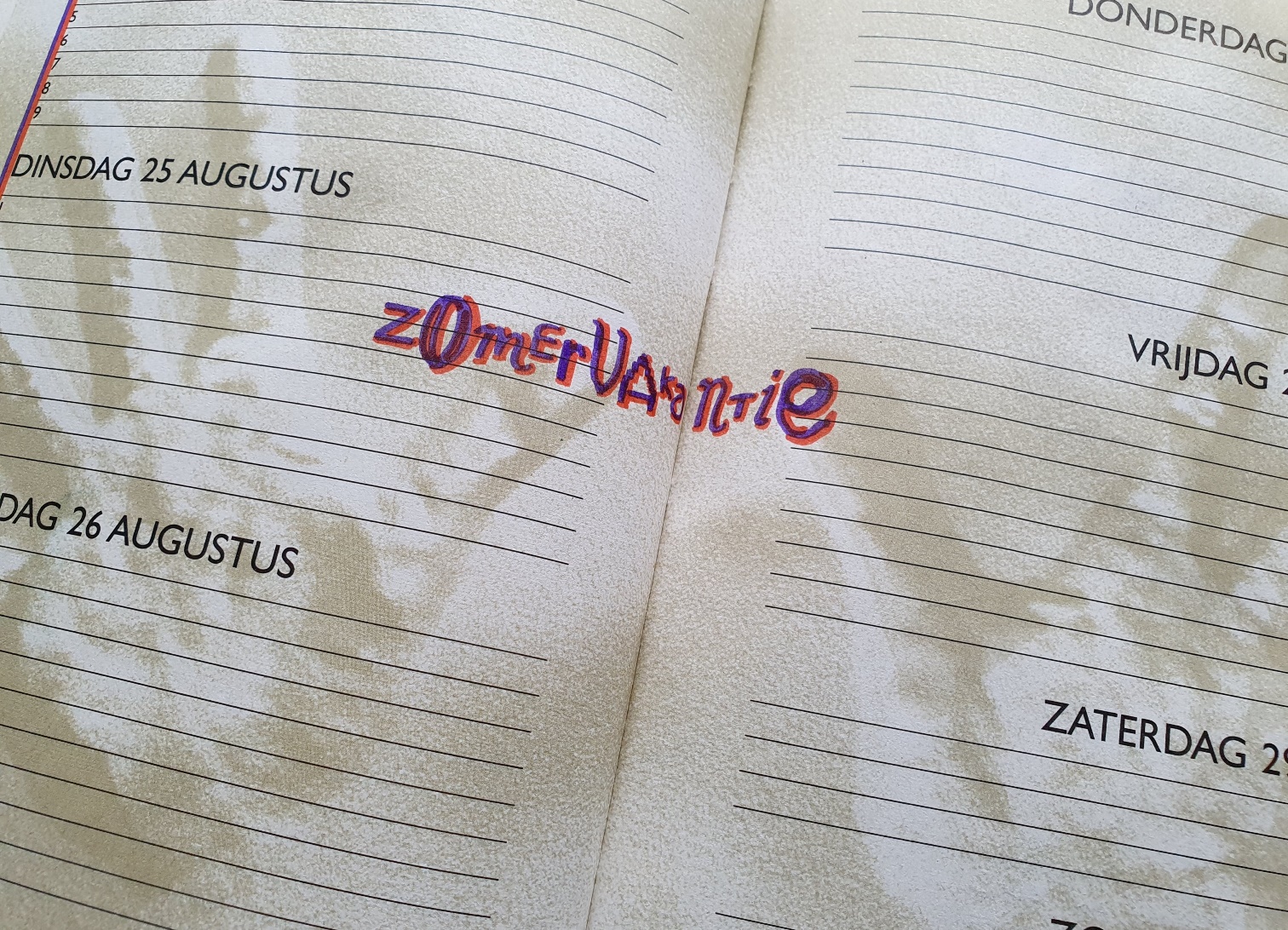WEST GERMANIC
Vacation (2)
Linguistics
| 14-08-2020
Last week I described the origin of words such as vakantie, vacant, vacancy and vacature from Latin and came, via German Ferien, to the word vacatiegeld.

And like that vacatiegeld (not to be confused with vakantiegeld) brings us back to vakantie. This keeps us with the case law for another while, since the Middle Dutch vacantie meant 'period without court hearings'. So ferie and vacantie (or vakantie, as it's spelled today) are close in meaning. Over time, the meaning of vacantie became broader and meant 'non-working period'. The English vacation has gone through a similar development. In British English, a vacation is still mainly a vacation from court and universities. In American English, it has been the common word for a holiday since the end of the 19th century, similar to vakantie in Dutch. British English still uses the word holiday for that. That derives, as you can clearly see from the word, from 'holy day', which originally meant a religious holiday, and (thus) a day 'of exemption from labor and recreation'. So holiday is comparable to German Ferien, although nowadays we often just use an exemption from labor for recreation.
Oorlof
Ferien and vacation have a clearly traceable relationship with comparable Dutch words, and that also applies to Urlaub. When Middle High German knew the forms urloup, urlop and urlob, with the meanings 'permission to leave, farewell, goodbye', Middle Low German knew the forms ōrlof(t), ōrlef and ōrleve, in Middle Dutch o(o)rlof. Reading that, I suddenly remeber the phrase ‘Oorlof, mijn arme schapen’ (in English something like 'Permission, my poor sheep', I guess). That's the first line of the fourteenth verse of the Wilhelmus, the Dutch national anthem. Oorlof meant 'permission', but in the Wilhelmus you appear to have to read it differently. According to Ad den Besten1, the word in rhetorical poetry announced the apotheosis of the poem. Whatever the case, we no longer use the word oorlof in Dutch, or at least not as a seperate word. In words like geoorloofd (permitted) and veroorloven (permit, allow) it still occurs and verlof (leave, permission) also has its origin in oorlof. And that brings us back to Urlaub, which after all also means 'leave'. The Germans have made a very nice derivation of that word: urlaubsreif. The next time I'm in need of a vacation, I'm goin to say I'm verlofsrijp or 'leave-ready'.

One of my old school diaries
Vacation vs holidayAnd like that vacatiegeld (not to be confused with vakantiegeld) brings us back to vakantie. This keeps us with the case law for another while, since the Middle Dutch vacantie meant 'period without court hearings'. So ferie and vacantie (or vakantie, as it's spelled today) are close in meaning. Over time, the meaning of vacantie became broader and meant 'non-working period'. The English vacation has gone through a similar development. In British English, a vacation is still mainly a vacation from court and universities. In American English, it has been the common word for a holiday since the end of the 19th century, similar to vakantie in Dutch. British English still uses the word holiday for that. That derives, as you can clearly see from the word, from 'holy day', which originally meant a religious holiday, and (thus) a day 'of exemption from labor and recreation'. So holiday is comparable to German Ferien, although nowadays we often just use an exemption from labor for recreation.
Oorlof
Ferien and vacation have a clearly traceable relationship with comparable Dutch words, and that also applies to Urlaub. When Middle High German knew the forms urloup, urlop and urlob, with the meanings 'permission to leave, farewell, goodbye', Middle Low German knew the forms ōrlof(t), ōrlef and ōrleve, in Middle Dutch o(o)rlof. Reading that, I suddenly remeber the phrase ‘Oorlof, mijn arme schapen’ (in English something like 'Permission, my poor sheep', I guess). That's the first line of the fourteenth verse of the Wilhelmus, the Dutch national anthem. Oorlof meant 'permission', but in the Wilhelmus you appear to have to read it differently. According to Ad den Besten1, the word in rhetorical poetry announced the apotheosis of the poem. Whatever the case, we no longer use the word oorlof in Dutch, or at least not as a seperate word. In words like geoorloofd (permitted) and veroorloven (permit, allow) it still occurs and verlof (leave, permission) also has its origin in oorlof. And that brings us back to Urlaub, which after all also means 'leave'. The Germans have made a very nice derivation of that word: urlaubsreif. The next time I'm in need of a vacation, I'm goin to say I'm verlofsrijp or 'leave-ready'.
WEST GERMANIC
In the West Germanic section, I regularly discuss a word that strikes me. I look at the meanings and forms of the word, and especially at where the word originates from. With that I compare the four West Germanic languages Dutch, English, Frisian and German, with the occasional inevitable trip across the fictional West Germanic border.
Sources
1Besten, A. den (1995). Wilhelmus van Nassouwe: het Nederlandse volkslied. Rotterdam: Donker.
For writing this piece, I also used etymologiebank.nl, taalweb.frl, dwds.de, etymonline.com and Van Dale Studiewoordenboek Duits-Nederlands (2006). The other sources are linked in the text, but not every linked page is a source.
Image: own photo.
